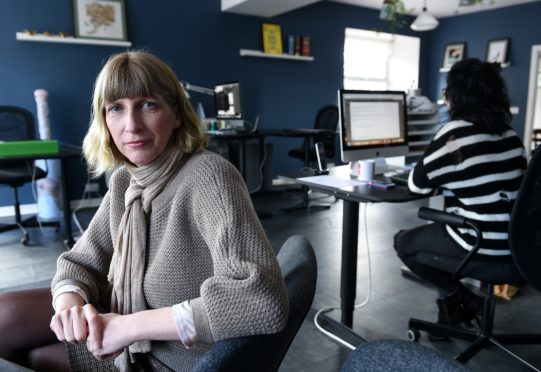Eleanor Bradford has personal experience of how the gender pay gap impacts on so many professions.
As BBC Scotland’s former health correspondent, she was paid “around £10,000” less than some of her male colleagues in similar roles, which prompted her to leave the corporation.
She told the Press and Journal yesterday she had witnessed “outrageous bias” in the workplace.
But, as she added, that didn’t mean there were any instant solutions to the problem.
Ms Bradford said: “I’m not surprised by the scale of the pay gap and I’m really pleased it has been highlighted, but it doesn’t mean the solution is any easier.
“Obviously, there are a lot of factors at play, including the fact both male and female managers are more likely to choose a man over a woman when making appointments and more likely to pay them more.
“This inherent bias has been proved several times in blind studies where men and women are given identical CVs and asked to rate the skills of the male CV compared to the female CV.”
Ms Bradford, who was formerly employed at Aberdeen University and now works as an associate partner at Spey PR in Aberlour, highlighted the different ways men and women were viewed by many companies,
She said: “Studies have suggested women are less likely to think they have enough experience or qualifications to apply for a promotion.
“There is also plenty of evidence the behaviour of men and women is interpreted differently – men who dominate a conversation are likely to be seen as confident and authoritative, whereas women are seen as bossy.
“There’s an assumption women are more concerned with their children than men. The most astonishing statistic I came across is that a woman is 79% less likely to get a job if she says on her CV she’s a member of a parent-teacher association.
“So we need some really good training for managers and hirers. Firstly, they need to be aware of their inherent bias, and secondly, they need some skills to encourage the women in their teams.
“We also need really fair recruitment systems and internal processes which are also fair – so that certain employees don’t get awarded plum roles and promotions because they’ve bonded with the boss over a shared interest in football.
“And yet, how do you create a system that is nimble and flexible, but also fair?
“I have seen outrageous bias in the workplace, but I’ve also seen the difficulties of creating a fair system. At the BBC, there were a huge variety of flexible working arrangements which made planning the rota a nightmare.
“At least the debate has started and this legislation has shone a light on the extent of the inequality.
“Now we need to work out how to fix it.”
